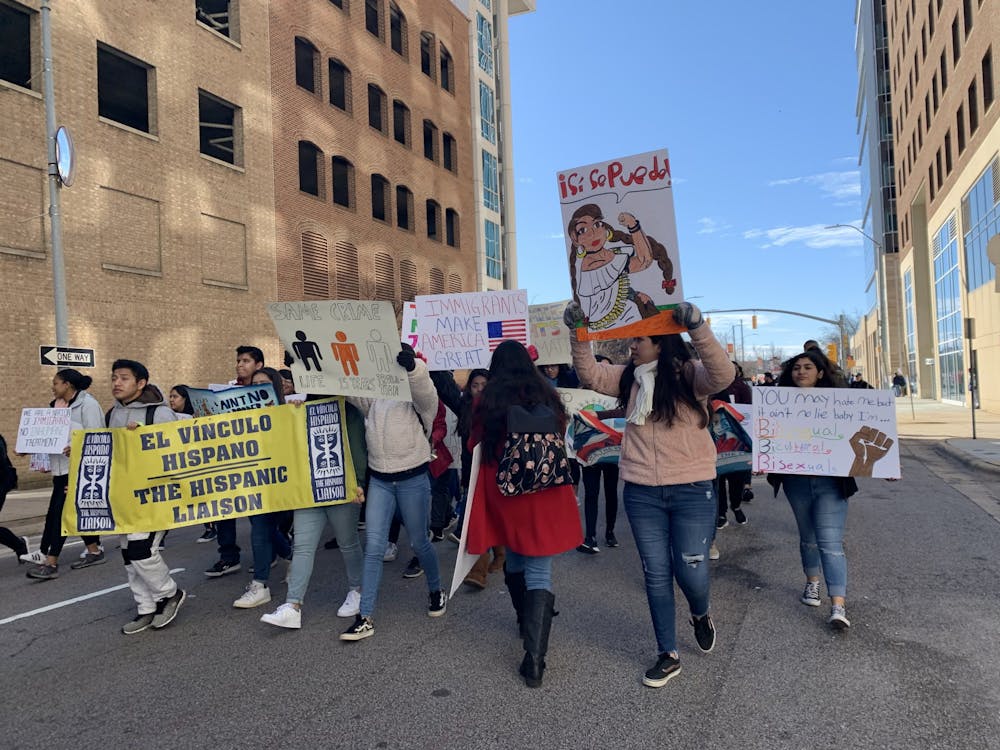Before Kyende Kinoti began attending UNC as an international student, her high school in South Africa, which sends many of its seniors abroad, gave its students a warning.
“We know all of you are passionate about social justice and you might want to participate in protests,” her school said. “But remember you are an international in the U.S. and that you can be sent home.”
This warning stayed with Kinoti throughout her four years at UNC, keeping her from joining protests on issues that affected her life, from Silent Sam to Black Lives Matter. As the Trump administration cracks down on all types of immigration, she is aware what one unwarranted arrest can do.
As protesters for the BLM movement are arrested throughout the country, students with a vulnerable immigration status in the United States are hesitant to join. Some, like Kinoti, are on temporary international and exchange visas. Some are in the process of gaining citizenship. Others, like undocumented immigrants or Deferred Action for Childhood Arrivals program recipients, risk being detained by or handed over to Immigration and Customs Enforcement.
UNC graduate Hannah Kim became naturalized last November. She remembers the long legal documents, the hefty fees and the ‘60s-style carpet in the building she was interviewed in. She also remembers being asked about her involvement in organizations, and warns others who aim for citizenship of protesting in the current BLM movement.
“It’s definitely unfair that people who are lawful residents, let alone undocumented, are in such fear of expressing the rights that are given to them,” Kim said.
What rights do non-citizen protesters have?
Damjan DeNoble, founder and managing partner of fronteraTECH Law, said legally, there is nothing stopping students from attending a peaceful protest, as long as they do not destroy property or engage in any physical or verbal altercations.
However, he acknowledged that peaceful protesters can be arrested in different police operations, such as when they rush a crowd and arrest protesters for rioting. Even then, he said a non-immigrant student visa holder has a chance to defend their case.



